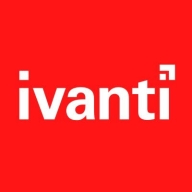

Ivanti Automation and Temporal compete in the automation solutions category, each with unique strengths. Temporal has the upper hand due to its scalability and reliability.
Features: Ivanti Automation provides impressive scripting capabilities, strong integration support, and extensive device management. Temporal offers superior workflow management, scalability, and fault tolerance, with advanced orchestration capabilities that cater to complex tasks.
Ease of Deployment and Customer Service: Temporal's lightweight deployment model and scalability are preferred for organizations with growing needs. Despite Ivanti Automation's strong support, its initial setup can be more complex. Temporal's smaller resource footprint facilitates seamless deployment.
Pricing and ROI: Ivanti Automation is known for lower upfront costs, suitable for budget-conscious organizations. Temporal offers significant long-term ROI due to scalability and reduced operational disruptions, providing enduring value for companies focused on growth and efficiency.


Routine manual tasks consume IT and service desk resources and limit its ability to move ahead with higher-impact strategic projects. Ivanti Automation, powered by RES streamlines the management of complex hybrid environments by automating infrastructure, cloud, and workspace automation processes required to support the business.
Temporal automates and manages workflows efficiently, offering resilience in distributed systems with features like retry and fault tolerance. Its capabilities in handling complex workflows and integrating with programming languages make it a valuable tool for managing diverse business logic.
Temporal excels in workflow orchestration, automating tasks across multiple platforms, and ensuring durability in asynchronous operations. It supports long-running workflows and simplifies handling distributed transactions, reducing boilerplate code. Temporal is noted for its durable execution and built-in retry policies, enhancing resilience. Despite its complexity and steep learning curve, it is valued for its integration with popular programming languages and relatively easy setup process, though it requires improvements in user-friendly features, documentation, community support, and security.
What are Temporal's key features?Temporal is implemented in sectors requiring robust workflow orchestration, such as managing data pipelines, API integration, and scheduling tasks. Organizations in a Kubernetes environment leverage it for its scalability and infrastructure management capabilities, securing integrations and enhancing reliability across IT operations.
We monitor all Process Automation reviews to prevent fraudulent reviews and keep review quality high. We do not post reviews by company employees or direct competitors. We validate each review for authenticity via cross-reference with LinkedIn, and personal follow-up with the reviewer when necessary.